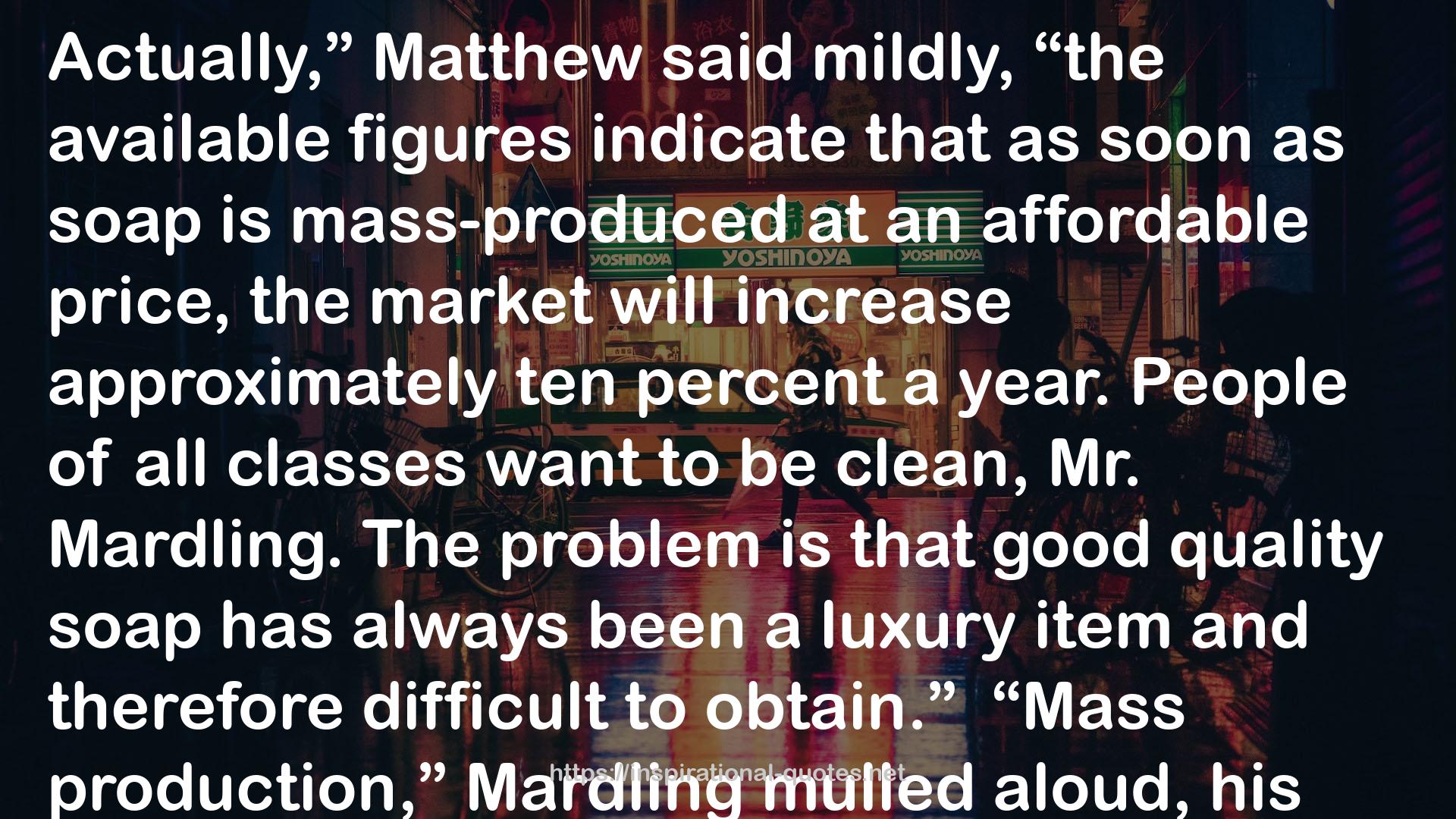" Actually,” Matthew said mildly, “the available figures indicate that as soon as soap is mass-produced at an affordable price, the market will increase approximately ten percent a year. People of all classes want to be clean, Mr. Mardling. The problem is that good quality soap has always been a luxury item and therefore difficult to obtain.”
“Mass production,” Mardling mulled aloud, his lean face furrowed with thought. “There is something objectionable about the phrase…it seems to be a way of enabling the lower classes to imitate their betters.”
Matthew glanced at the circle of men, noting that the top of Bowman’s head was turning red—never a good sign—and that Westcliff was holding his silence, his black eyes unreadable.
“That’s exactly what it is, Mr. Mardling,” Matthew said gravely. “Mass production of items such as clothing and soap will give the poor a chance to live with the same standards of health and dignity as the rest of us.”
“But how will one sort out who is who?” Mardling protested.
Matthew shot him a questioning glance. “I’m afraid I don’t follow.”
Llandrindon joined in the discussion. “I believe what Mardling is asking,” he said, “is how one will be able to tell the difference between a shopgirl and a well-to-do woman if they are both clean and similarly dressed. And if a gentleman is not able to tell what they are by their appearance, how is he to know how to treat them?”
Stunned by the snobbery of the question, Matthew considered his reply carefully. “I’ve always thought all women should be treated with respect no matter what their station.”
“Well said,” Westcliff said gruffly, as Llandrindon opened his mouth to argue.
No one wished to contradict the earl, but Mardling pressed, “Westcliff, do you see nothing harmful in encouraging the poor to rise above their stations? In allowing them to pretend there is no difference between them and ourselves?”
“The only harm I see,” Westcliff said quietly, “is in discouraging people who want to better themselves, out of fear that we will lose our perceived superiority. "
― Lisa Kleypas , Scandal in Spring (Wallflowers, #4)
